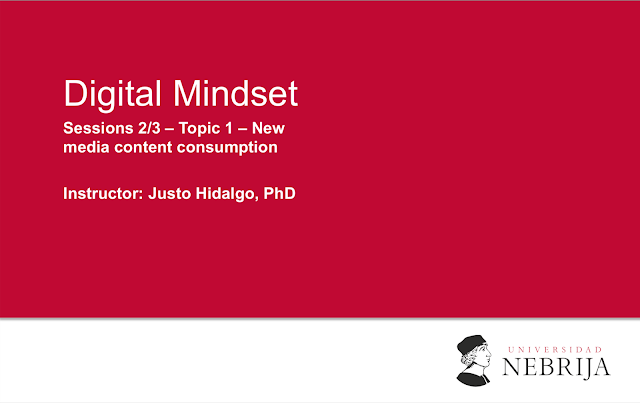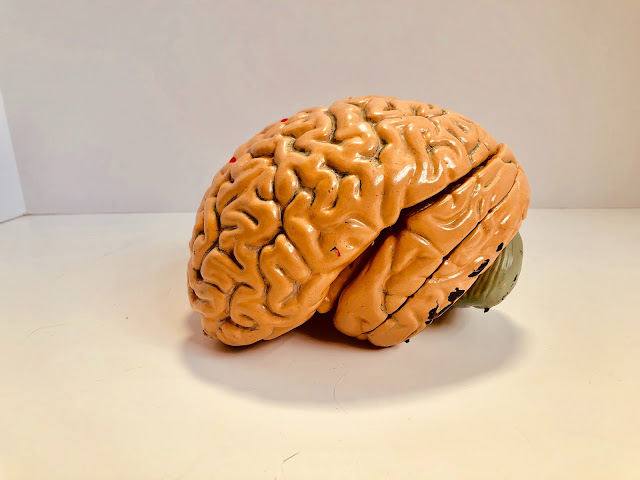Teaching a Digital Mindset course - New Media Content Businesses
The Digital Mindset course that I have been teaching at Nebrija University covers some societal and professional challenges so that students can reflect on the positive/negative/neutral role digital systems have.
The first topic has been "New business models in media content". The reason I decided to start with this one is quite evident, as most students have an opinion on how services like Spotify, Netflix or Twitch have on their daily lives. I wanted them to take one step further and take a look at business models, usage of data and ethical aspects.
My focus during the first session was how companies try to find new business models that engage media consumers while providing benefits to both the content producer and the mediators. That is why the talk by a16z's Connie Chan was at the core of the class. In this talk, Ms. Chan compares how many western media companies are focusing most of their business model efforts in subscription. Netflix, Spotify, HBO and the like. Others, like Instagram, Snapchat and the like focus their revenue income in advertisement models.
However, in China many companies are trying to diversify in terms of those business models. And the opportunities, while may appear as too extreme at the beginning, are quite interesting. Watch the video and/or read the related article, they are both totally worth it.
While this was the main assignment, students were exposed to other ideas, such as the usage of data to improve the knowledge about the current users, with its clear advantages and clear disadvantages and challenges.
We also discussed about the difficulties of building a single media hub (for instance, a place to watch all available movies and series) due to complex copyright and contractual issues, some coming from years and years of non-digital development, others because of content owner interests.
We also discussed about the difficulties of building a single media hub (for instance, a place to watch all available movies and series) due to complex copyright and contractual issues, some coming from years and years of non-digital development, others because of content owner interests.
Students then had a week to work on some of these aspects. For instance, they presented some insights about specific services, or reflections about, as mentioned above, how perspective changes from the needs of the users - I want everything in one single place- to the needs of the content producers - best financial and distribution conditions even if that means selling rights to different platforms in different countries-.
I am just starting so let's see how this evolves. Next session... The New Employee and the Future of Work.




Comments